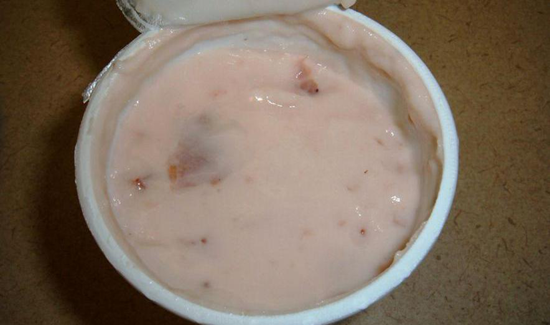
Vegetarians beware: there are pieces of dead animals everywhere! If you’ve decided to stop eating meat, you might soon realize that it’s not just the obvious meat products you have to give up. The more research you do, the more you realize there are bits of animals or meat by-products in all types of food that you assumed were vegetarian.
10. Apples
Have you ever bought an apple and felt that it was rather waxy? Apples produce a natural wax to retain their moisture and stay fresh. After being picked apples are washed to remove dirt, which also removes their wax, so they’re coated in another wax. New waxes include carnauba, candellia or shellac. Carnauba and candellia are plant based, but shellac is derived from the lac bug. Generally the type of wax used on apples is unspecified at the point of purchase. So how do you make sure your apples are vegetarian? Either buy them from a farmer’s market or ask the grocery store’s produce manager if they have access to this information from their apple supplier.
9. Fries
French fries, whether you buy them from a restaurant, a fast food chain or from the frozen aisle at your grocery store, may contain beef tallow, a rendered form of beef fat. Fries are usually processed in a factory where they’re fried in beef tallow before being frozen and transported. Although a store may claim their products are cooked in 100% vegetable oil, this claim might not factor in the beef tallow frying. McDonald’s were sued in 2001 by a group of vegetarians as McDonald’s fries contained beef flavouring, which they failed to disclose on their ingredients list. However, McDonald’s never claimed their french fries were vegetarian - that was just the assumption. If you want to be certain your fries contain no animal fat or other by-products, ask for an ingredients list or do your research online before heading out to eat.
8. Vegetarian Fast Food Meals
Speaking of fast food, be wary of any food labelled vegetarian at fast food chains. Just because it’s advertised as such doesn’t guarantee it contains no meat or animal by-products. Fast food labelled “veggie” (for example, veggie burgers) may be misleading, as the store is making no claim the product is actually vegetarian. While care is taken during food preparation, vegetarian foods may be contaminated with meat. It’s common for vegetarian pizzas to contain the odd piece of pepperoni, and the cheese is likely to contain animal rennet. Where vegetarian nachos are offered, the refried beans may contain animal fats. Veggie burgers may also contain rennet. Always ask about the ingredients and never assume a product is completely free of meat by-products. Most fast food chains now provide ingredients for all their products on their websites, so it’s easy to check out your vegetarian options before dining out.
7. Red Foods
Look out for foods with an unnatural red colour! Colour E120, also known as carmine, carminic acid or natural red #4, is extracted from the ground-up shell of the female cochineal insect. Cochineal can be found in food colouring, jellies, lollypops, strawberry milk flavouring, strawberry flavoured yogurts, and many other red coloured foods. Cochineal is also used to colour lipsticks, clothing and pill coatings. If a packet states “all natural colours,” you can safely assume that natural red colour is from the cochineal beetle, as most other red colour additives are synthetically made. The use of cochineal as a red dye originated in Peru about 1500 years ago. As bugs as animals, anything containing cochineal colouring is not suitable for vegetarians.
6. Ice Cream
Ice cream is a comfort food vegetarians might have to cross off their shopping lists. Many ice creams contain a fatty acid derived from animal fats, known as capric acid or decanoic acid. Another animal-derived ingredient that may be used is gelatin, although that’s rare. Lard, however, has commonly been reported to be contained in ice cream. Luckily, vegetarians can still slurp up this soft serve treat - just make sure you read the ingredients list to be sure there are no animal fats or gelatin in your ice cream. Alternatively, you could always buy a non-dairy ice cream or make your own ice cream!
5. White Sugar
There are two sources of white sugar - cane sugar and beet sugar. Cane sugar undergoes a refining process, where the sugar may be processed through charcoal that can be made with bones of animals. While no traces of bone can be found in refined sugar, the fact that animal bones are used in the production make white cane sugar non-vegetarian. Cane sugar can also be refined with more modern technology, but unless you contact the sugar manufacturer you can’t be certain which refining process was used.
Beet sugar doesn’t need this refining process, so it’s safe for vegetarians. Vegetarian alternatives to white sugar also include raw sugar and coconut sugar. Brown sugar is often white sugar combined with molasses, so it’s not safe to assume brown sugar is safe for vegetarians. Also be aware of any processed foods already containing sugar, such as baked goods or canned fruits, as these may contain sugar refined with bone char.
4. Cheese
Many vegetarians rely on cheese as a source of protein and calcium, but did you know that not all cheeses are vegetarian? Many hard cheeses contain rennet, which is an enzyme that separates the curds and whey in the milk. Animal rennet is derived from the fourth stomach lining of slaughtered unweaned calves. Parmesan, Gorgonzola and Grana Padano always use animal rennet, as to be named as such they need to be produced using calf rennet. Soft cheeses may or may not be produced with rennet, so check the ingredients list on the cheese package. Vegetarian cheese lovers can find cheeses with rennet derived from vegetable, fungi or microbial sources. Most cheeses in grocery stores state the source of their rennet, but if they don’t you should assume the rennet is derived from calves. Be wary of cheese in foods at fast food chains or restaurants - ask to see an ingredients list before ordering.
3. Alcohol
Beer is just malt and water fermented, right? But after the fermentation process some beer manufacturers refine their beer with isinglass (fish swim bladders) chitosan (derived from crab shells) or gelatin (derived from animal bones and ligaments). The fining agents used in the refining process collect the yeast and clarify the beer, ensuring it isn’t cloudy. Generally, none of these fining agents remain in the end product, so technically you aren’t consuming bits of crab or fish bladders when you drink beer. However, some traces may remain (some beer labels have a disclaimer that the product may contain traces of crustacean) and a hard-core vegetarian wouldn’t want to consume something produced with the aid of animals.
Wine is another alcoholic beverage which may contain traces of dead animals. Chitosan, gelatin and isinglass are all often used to clarify white wines, and gelatin can be used in red wines to remove tannins. Good news for vegetarian booze lovers though - most spirits aren’t produced with the use of meat by-products. A good resource to check if an alcoholic beverage is vegetarian or not is Barnivore.
2. Yogurt
Like cheese, many vegetarians consume lots of yogurt, believing it’s an animal-free source of nutrients and probiotics. However, some yogurt contain gelatin, and some strawberry flavoured yogurt may contain the previously discussed red colouring. Also look out for yogurt which contain added omega-3s - the omega-3 fatty acids are usually in the form of fish oil. To be sure your yogurt is vegetarian, always read the ingredients. Look for natural and plain yogurts as these are less likely to have unnecessary ingredients (although gelatin, cochineal and fish oil are all classed as natural ingredients, so don’t assume all natural yogurts are vegetarian). Not sure you can trust commercial yogurt brands now? You could also buy a yogurt maker and make the yogurt yourself so you know exactly what ingredients are in it!
1. Bread
Watch out for bread, vegetarians! No longer just flour, yeast and water, breads now contain all sorts of ingredients that might surprise you. Have you seen the breads claiming to be “heart healthy” and enriched with omega-3s? These breads usually contain fish oil, or they may contain flax seeds - check the ingredients. Breads may also contain L-cysteine (a derivative of human hair, hog hair or poultry feathers, which is also known as L-cysteine monohydrochloride or additive 920). Not all L-cysteine is derived from animal sources, however non-animal L-cysteine (synthetically produced or fermented from vegetables) is more expensive to produce so animal-derived L-cysteine is more commonly used.

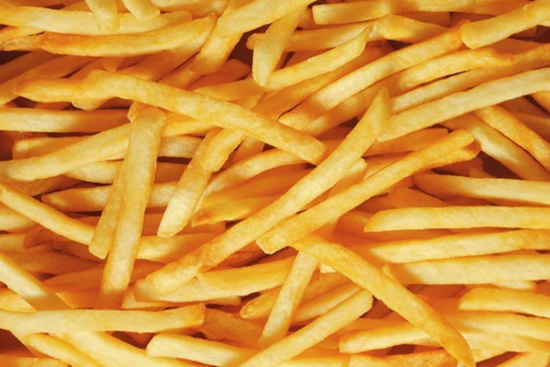



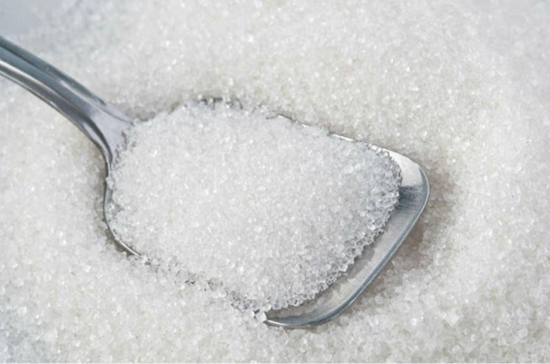
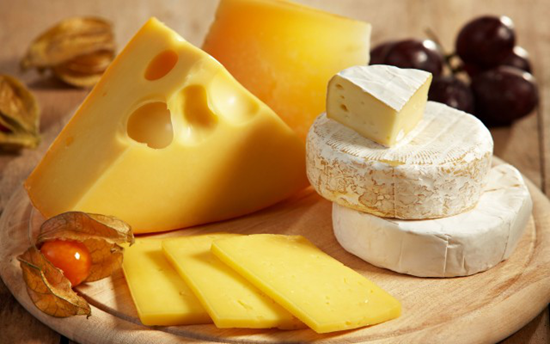
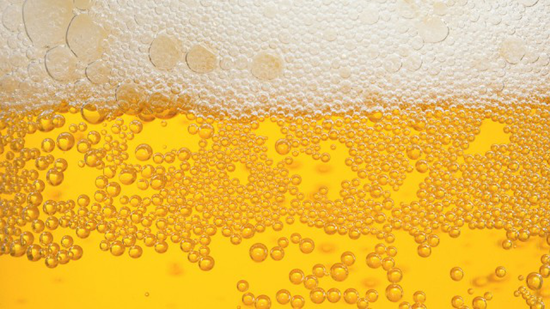
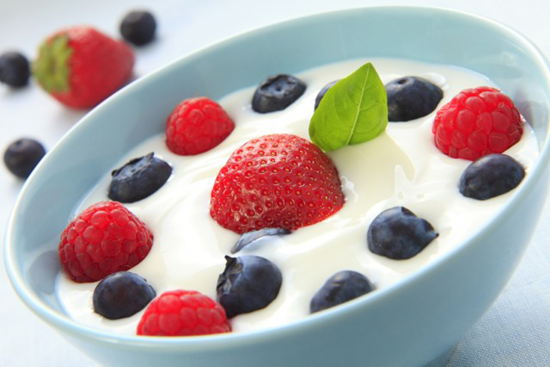
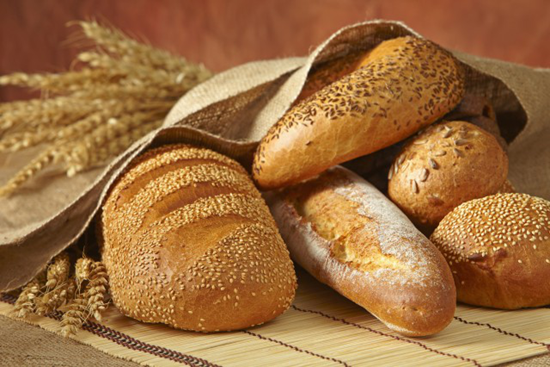
No comments:
Post a Comment
Please adhere to proper blog etiquette when posting your comments. This blog owner will exercise his absolution discretion in allowing or rejecting any comments that are deemed seditious, defamatory, libelous, racist, vulgar, insulting, and other remarks that exhibit similar characteristics. If you insist on using anonymous comments, please write your name or other IDs at the end of your message.